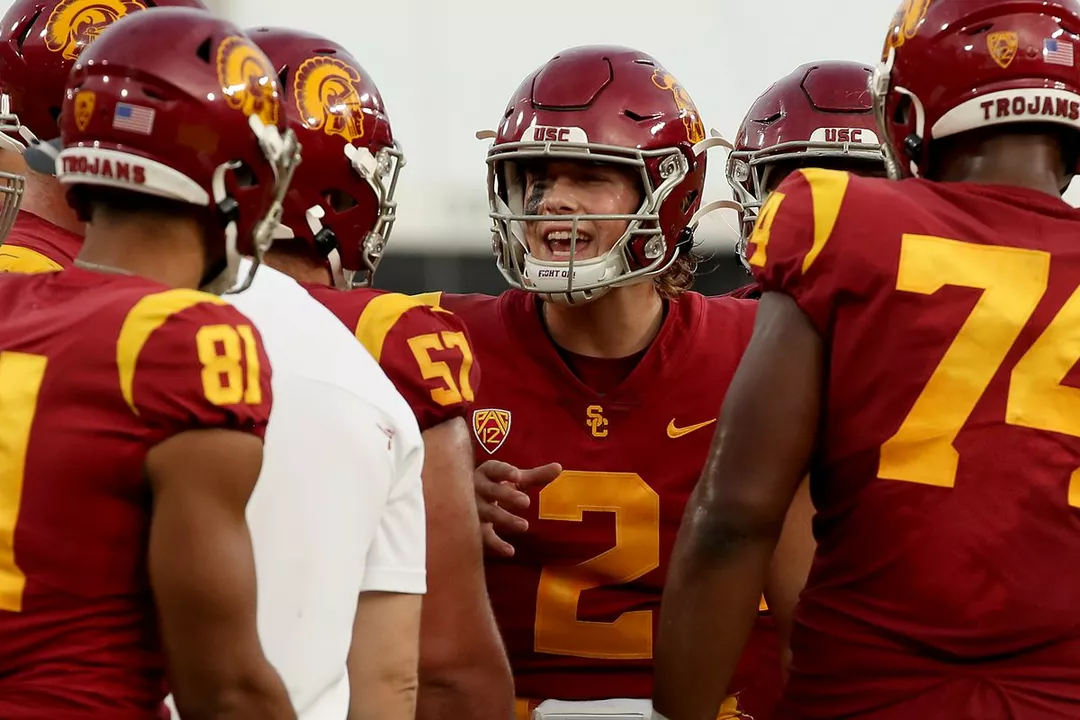A Storied History: The Foundation of USC Athletics
As a USC Trojans fan, I've always been fascinated with the rich history and traditions surrounding the university's athletic programs. It's incredible to think about how many great athletes have donned the cardinal and gold over the years, and the impact that these individuals have had on the world of sports. In this section, I'll be delving into the origins of USC athletics, from the humble beginnings of the football team to the formation of other sports programs at the school.
Founded in 1880, the University of Southern California didn't establish its first athletic program until 1888, when the university's football team was formed. Initially, the team played against other colleges and athletic clubs in Southern California. As the popularity of the sport grew, so too did the university's commitment to athletics. Over time, USC added a variety of sports programs, including track and field, baseball, and basketball, among others. Today, the USC Trojans boast 21 varsity sports teams, with a storied history of success that includes numerous national championships and Olympic gold medals.
The Trojan Mascot: A Symbol of Strength and Honor
One of the most recognizable symbols of USC athletics is the Trojan mascot. Adopted in 1912, the mascot was chosen to represent the university's athletes due to the ancient Trojans' reputation for strength, determination, and honor. The Trojan mascot has taken many forms over the years, but perhaps the most famous iteration is Traveler, a stunning white horse ridden by a student dressed in full Trojan regalia.
Traveler first appeared at USC football games in 1961, and quickly became a staple of the university's sporting events. The sight of Traveler galloping around the field after a Trojans touchdown is a thrilling experience for fans, and serves as a powerful reminder of the indomitable spirit of USC athletes. Traveler's presence at games is just one of the many ways that the university honors its Trojan heritage.
The Coliseum: Home of the Trojans
When discussing the traditions of USC athletics, one cannot overlook the historic Los Angeles Memorial Coliseum. Opened in 1923, the Coliseum has been the home of the USC Trojans football team for nearly a century. The stadium has played host to numerous significant events over the years, including two Olympic Games, two Super Bowls, and a World Series.
For USC fans, the Coliseum is hallowed ground, a place where countless memories have been made and where the future stars of Trojan athletics will continue to shine. Attending a game at the Coliseum is an experience like no other, and it's easy to feel the weight of history in the air as you cheer on the Trojans alongside thousands of fellow fans.
The Spirit of Troy: USC's Marching Band
Another essential element of USC sporting events is the university's marching band, known as the Spirit of Troy. Formed in 1918, the band has been a constant presence at Trojan athletic events, providing a rousing soundtrack to the action on the field. The Spirit of Troy is renowned for its energetic performances, intricate formations, and ability to get fans on their feet and cheering for the home team.
Over the years, the Spirit of Troy has earned a reputation as one of the best college marching bands in the nation, and has even performed at numerous high-profile events outside of the world of sports. For many USC fans, a Trojans game simply wouldn't be complete without the powerful sounds of the Spirit of Troy echoing through the stadium.
USC's Olympic Connection
One aspect of USC's athletic tradition that sets it apart from other universities is its strong connection to the Olympic Games. Over the years, the school has produced an astonishing number of Olympic athletes, with Trojans competing in every Summer Olympics since 1904. As of the 2020 Games, USC athletes have won a staggering 309 medals, including 144 golds.
This impressive record is a testament to the dedication and skill of USC's student-athletes, as well as the university's commitment to fostering excellence in its athletic programs. The Olympic tradition is a source of immense pride for the USC community and serves as an inspiration for aspiring Trojans to achieve greatness both on and off the field.
Rivalries and Traditions: The Lifeblood of USC Athletics
Lastly, what would USC athletics be without its storied rivalries and traditions? From the annual football game against UCLA to the iconic lighting of the Olympic torch at the Coliseum, these rituals and customs have become an integral part of the USC experience. These rivalries and traditions not only provide a thrilling backdrop to the action on the field, but also serve to strengthen the bonds between USC athletes, students, and alumni.
As a USC fan, I can attest to the power of these rivalries and traditions in shaping the identity of the university and its athletic programs. They serve as a constant reminder of the hard work, determination, and spirit that define the Trojan family, and as a rallying point for fans and athletes alike as they strive for victory.
Conclusion
From the early days of USC football to the triumphs of Trojans on the Olympic stage, USC athletics has a rich history filled with storied traditions and a powerful legacy of success. As a fan, it's an honor to be a part of this incredible community, and I am constantly inspired by the dedication, passion, and spirit displayed by USC athletes both past and present. Here's to many more years of Trojan glory!
